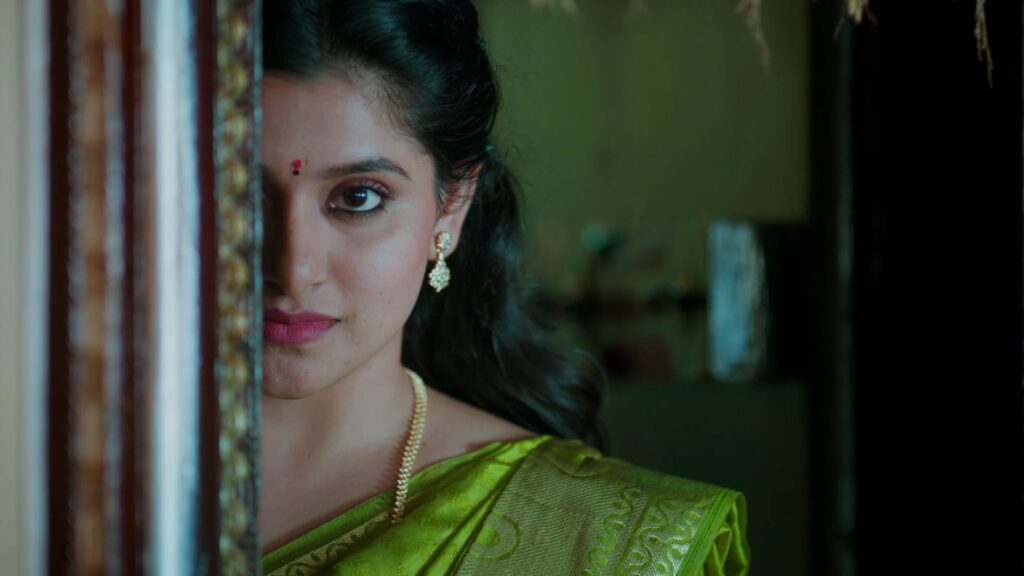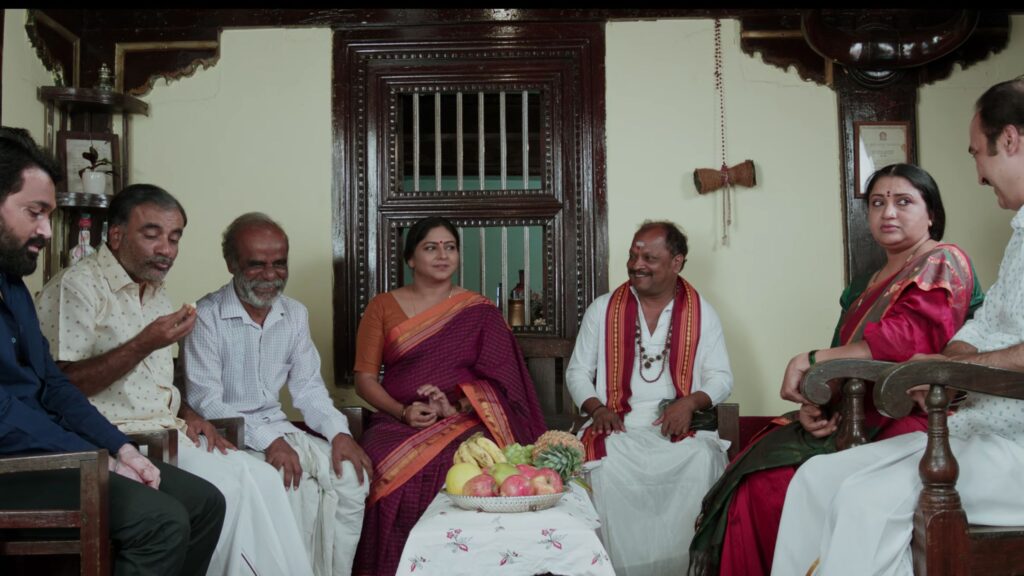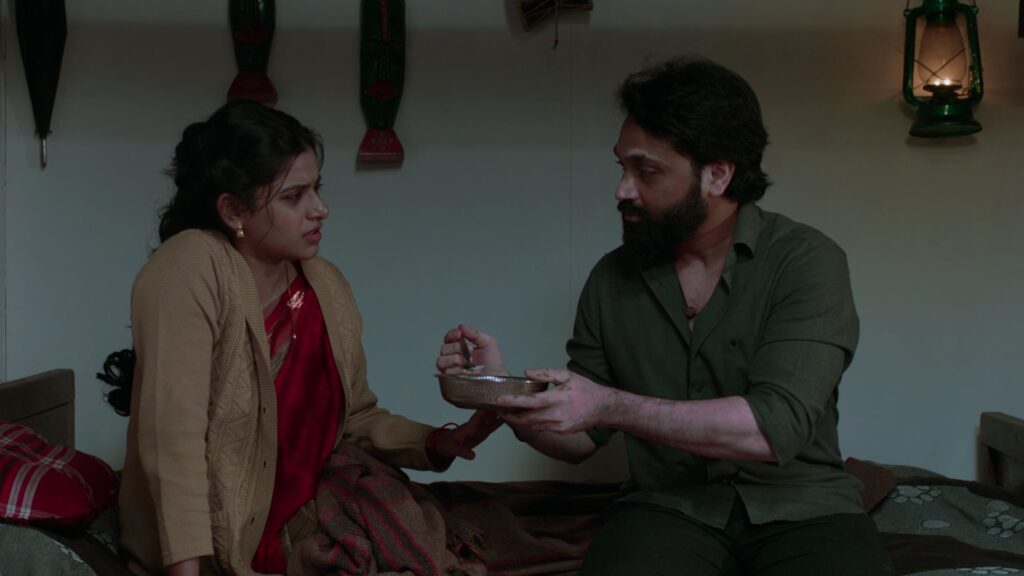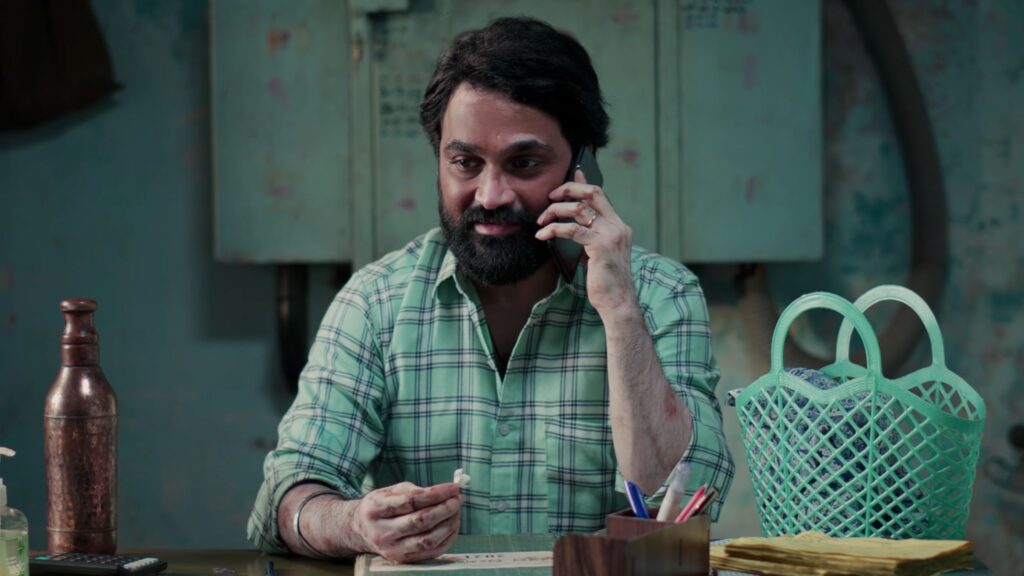Title – Bili Chukki Halli Hakki, Producer – Honnudi Films, Director – Mahesh Gowda, Cinematography – Kiran CHM, Music – Riyo Antony, Cast – Mahesh Gowda, Kajal Kunder, Veena Sunder, Lakshmi Siddaiah, Ravi Bhat, Jahangir, and others.
Humanity is more than everything in life. Despite ailments, humanity is the appropriate step. Perhaps for the first time in Kannada cinema, a film on White Patches on a human body is kept at the center stage to narrate the tale. As a matter of fact, White Patches (Bili Chukki) is not a disease but is considered rubbish by some sections of people who have the wrong perception that it is contagious and spreads through generations.

Director Mahesh Gowda, with multiple responsibilities of direction, acting in the lead role, and producing the film, has given the right approach and attitude to this subject of White Patches and made the film with a cool and composed nature. In fact, this film Bilichukki Halli Hakki is a cool watch. It does not disturb the audience and focuses on the wrong perception that is inculcated in the screenplay for twists and misunderstandings between the lead characters.
Right from childhood, Shiva (Mahesh Gowda) has these white patches, and they grow as he grows. This is regarded as rubbish in society, and he is treated badly. But Shiva has a deeply concerned mother, Shantha (Lakshmi Siddaiah), who struggles for his growth, and he has a heart of gold. As the mother wishes for his marriage, after a series of girls turning down the offers, it is Kavitha (Kajal Kunder) who shows interest in marrying him. The decision of Kavitha is objected to by her mother, Susheela (Veena Sunder), but she has the support of her father and sister in her decision to marry Shiva, who has white patches all over his body.

In the second half, director Mahesh Gowda shows expertise and skill in bringing out the reasons behind Kavitha’s marriage with Shiva. On the other hand, Shiva is wrongly fed with the information that Kavitha married him out of compulsion. The two focal points in the post-interval are narrated in a convincing style, and how Shiva and Kavitha reunite is the guessing element told by the director.
Mahesh Gowda as Shiva has given a neat and sensible performance. He represents the White Patches in society and shows how noble work brings society to his side. As a director, he could have made it crisper in the first half, as the attention level is not strong enough to hold the audience. In the second half, the turns and twists he carries are no doubt the strength of the film.

Kajal Kunder as Kavitha is very promising, and she has rightly understood the role given to her. The costumes, timid dialogues, and emotional moments are apt for the film. The two mothers and one doting father take the acting department to higher levels. Lakshmi Siddaiah, as Shiva’s mother, gives admirable support. Veena Sunder, as a mother with the wrong notion about white patches, has delivered a sensible performance. Ravi Bhat (brother of Vinaya Prasad) scores as the doting father, and his dialogue delivery to convince his daughter and wife is superb. Jahangir, as the comedy actor in support of the protagonist, is appropriate in his role.
The two background scores by Riyo Antony for the film appear at the right time, with some meaningful lyrics. A song for the merry mood of the protagonist Shiva is very well scored. Cinematographer Kiran CHM has kept the right angles and has effectively used minimal lighting to please the audience’s eyes. This film on White Patches, considered a wrong omen in society, deserved a little more research work to make it more appropriate.

